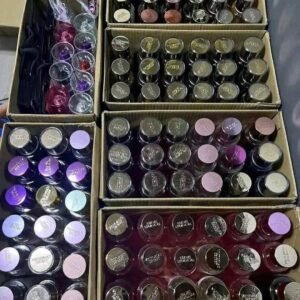The Art and Science of Perfume: A Detailed Exploration.perfume testers for sale
Perfume is more than just a fragrant liquid; it is an emotional companion, a sensory signature, and often, an extension of one’s identity. The creation and use of perfume have a rich history, blending art, science, and culture.
In this article, we’ll delve into the origins, composition, classifications, and the psychology behind perfumes, as well as tips on selecting and wearing them.perfume testers for sale
The Origins of Perfume
The word “perfume” comes from the Latin phrase per fumum, meaning “through smoke.” This reflects its ancient roots when early perfumes were created using burning aromatic substances as offerings to gods. Perfume-making can be traced back thousands of years, with notable contributions from:
- Ancient Egypt: Egyptians are considered pioneers in perfumery. They used oils and resins in religious rituals and personal grooming. Cleopatra, for instance, was famous for her use of custom fragrances.
- Mesopotamia and Ancient Greece: Perfume-making flourished here, with advancements in distillation techniques.
- The Islamic Golden Age: During the medieval period, Islamic scholars like Al-Kindi and Avicenna revolutionized perfumery by refining alcohol-based distillation.
- The Renaissance in Europe: Perfume became a status symbol in Europe, particularly in countries like France and Italy, leading to the establishment of modern perfumery in the 16th and 17th centuries.
What Is Perfume Made Of?
Perfume is a complex blend of ingredients, typically classified into three main components:
- Essential Oils and Aromatic Compounds:
- These are the heart of any perfume, contributing to its scent profile.
- Common raw materials include flowers (e.g., rose, jasmine), spices (e.g., clove, cinnamon), woods (e.g., sandalwood, cedarwood), and even animal-derived substances (e.g., ambergris, musk).
- Modern perfumes often use synthetic compounds to mimic natural scents or create entirely new ones.
- Solvent (Base):
- Alcohol is the most common solvent used in perfumes. It helps dissolve aromatic materials and quickly evaporates when applied to the skin, allowing the fragrance to disperse.
- Fixatives:
- Fixatives stabilize the perfume and ensure its longevity. These can be natural (like resins or balsams) or synthetic.perfume testers for sale
Understanding Fragrance Notes
Perfume is structured with three layers of “notes,” which unfold over time when applied:perfume testers for sale
- Top Notes: These are the initial scents you smell immediately after application. They are light, fresh, and tend to evaporate quickly (e.g., citrus, herbs, or light florals).perfume testers for sale
- Heart (Middle) Notes: These emerge after the top notes fade and form the “core” of the fragrance. They are richer and fuller, often composed of florals, spices, or fruits.
- Base Notes: These are the lasting impressions of the perfume, lingering for hours. They are typically warm, deep, and grounding (e.g., woods, vanilla, musk).
Fragrance Families
Perfumes are classified into fragrance families based on their dominant characteristics. The main categories include:perfume testers for sale
- Floral: Romantic and feminine, characterized by scents like rose, jasmine, and lily.
- Oriental: Warm, spicy, and exotic, often featuring amber, vanilla, and incense notes.
- Woody: Earthy and rich, with notes of sandalwood, cedar, and patchouli.perfume testers for sale
- Fresh: Light and invigorating, including citrus, aquatic, and green scents.
- Chypre: A blend of citrus, oakmoss, and woody notes, creating a sophisticated profile.
- Gourmand: Edible and sweet, with notes like caramel, chocolate, and vanilla.
The Psychology of Perfume
Perfume has the unique ability to evoke memories, emotions, and even change perceptions. This is because the sense of smell is closely linked to the limbic system, the part of the brain associated with emotions and memory. Here’s how perfume impacts us:
- Memory Triggers: A specific fragrance can transport you back to a moment in time or remind you of a particular person.perfume testers for sale
- Mood Enhancer: Certain scents can uplift your spirits (e.g., citrus for energy, lavender for relaxation).
- Confidence Booster: Wearing a perfume that aligns with your personality can make you feel more confident and attractive.perfume testers for sale
How to Choose and Wear Perfume
- Choosing the Right Perfume:
- Identify your preferred fragrance family (e.g., floral, woody, fresh).
- Test perfumes on your skin, as body chemistry can alter the scent.
- Start with lighter concentrations (eau de toilette) before progressing to stronger versions (eau de parfum).
- Applying Perfume:
- Apply to pulse points where the skin is warm (e.g., wrists, behind ears, neck).
- Avoid rubbing your wrists together, as it can “crush” the fragrance.
- Layer your fragrance by using matching body lotions or oils.perfume testers for sale
- Storing Perfume:
- Perfume is sensitive to heat, light, and air. Store it in a cool, dark place to maintain its quality.
Sustainability in Perfumery
In recent years, there has been a growing emphasis on sustainability in the perfume industry. This involves:
- Using ethically sourced ingredients (e.g., fair-trade vanilla, organic rose petals).perfume testers for sale
- Developing eco-friendly packaging (e.g., recyclable bottles).
- Reducing reliance on animal-derived ingredients by using synthetic alternatives or plant-based substitutes.

Fun Facts About Perfume
- The most expensive perfume in the world is Shumukh, valued at $1.29 million, featuring rare ingredients and a luxurious bottle adorned with diamonds.perfume testers for sale
- Chanel No. 5, created in 1921, remains one of the best-selling perfumes of all time.
- Perfume smells differently on everyone due to variations in body chemistry, diet, and skin type.
Perfume is truly an art form that engages the senses, tells stories, and leaves lasting impressions. Whether you’re a long-time enthusiast or a newcomer exploring the world of fragrances, there’s a perfect scent out there waiting for you to discover. So, take a deep breath and step into the enchanting world of perfume!





Reviews
There are no reviews yet.